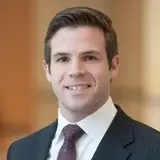Ujima Fund Investor Report Interview: Steve Dubb
- Boston Ujima Project
- Oct 1, 2022
- 3 min read

October 1st, 2022 -- Steve Dubb is senior editor of economic justice at Nonprofit Quarterly (NPQ), where he writes articles (including NPQ’s Economy Remix column), moderates Remaking the Economy webinars, and works to cultivate voices from the field and help them reach a broader audience. Prior to coming to NPQ in 2017, Steve worked with cooperatives and nonprofits for over two decades, including twelve years at The Democracy Collaborative and three years as executive director of North American Students of Cooperation (NASCO). In his work, Steve has authored, co-authored, and edited numerous reports; participated in and facilitated learning cohorts; designed community building strategies; and helped build the field of community wealth building.
Paige Curtis, Culture & Communications Manager at Ujima, spoke with Steve Dubb, a member of Ujima’s anchor institution member team to discuss how they’ve engaged anchor organizations around Boston.
Paige Curtis: I’m really interested in your experience organizing anchor institutions. Where did that start, and what you learned from the experience?
Steve Dubb: When I was a graduate student at the University of California, San Diego, the university tried to shut down a worker cooperative, of which I was a member. We ended up suing the university in superior court and winning because they were trying to forcibly evict us even though we had a lease. Then, there was a whole two-year-long political campaign.
But really, throughout history, there have been efforts to make universities, hospitals, etc responsible to the communities they’re in – whether they’re state-owned, private, or nonprofits. I went on to work with the Democracy Collaborative and published a study called “Linking Colleges to Communities” in 2007, and later published a book with Rita Hodges called The Road Half Traveled. As a result, Rita and I came up with this idea of an anchor mission and defined an anchor institution as one that sees its purpose, or part of its purpose, [as] benefit[ing] the community, both out of self-interest and for social justice reasons. So anchors who accept this mission should align their educational work, public outreach, research, and economic activities to serve the community.
Are there any anchor institutions you’ve gotten to invest in the Ujima Fund or contribute to our work in some way?
We’ve found that churches because they tend to be smaller organizations, mission-based, and very rooted in their communities, are more aligned with our goals on the anchor institution member team. Some Unitarian churches and Kavod, a Jewish social justice group in Boston, have ministries more oriented around equity and justice, so many have either donated or become investors in the Ujima Fund. Overall, we raised about $200,000 [for] the Ujima Fund through the anchor network, so it’s significant. We want to turn to hospitals and universities eventually, but so far we’ve worked where there was the most opportunity and interest.
Can you tell us about your work around PILOT (payment in lieu of taxes) and how it connects to Ujima’s mission?
If anchor institutions could be made to benefit the public, that would be powerful, which is where PILOT legislation comes in. So I’m a part of the PILOT Action Group, a coalition of people and organizations working to get nonprofit institutions to pay their fair share of property taxes. PILOT stands for Payment in Lieu of Taxes, which allows nonprofits who are tax exempt to pay 25% of their potential property taxes based on their 2010 tax assessment, and offset 50% of their payment with a “community benefit” that is supposed to target residents of the city. But these PILOT contributions often go unpaid by institutions like Northeastern University, Boston College, Harvard University, and Boston University.
I liaise between the PILOT action group and Ujima, to help set organizing priorities around housing, education, health, and transportation to ensure the community has a say in what counts as a “community benefit.”
What are you most looking forward to when it comes to what the anchor institution member team has planned?
As more businesses join the Ujima Good Business Alliance, receive investments and become embedded in the ecosystem, then the vision of a thriving Black economy sourced from local institutions and capital becomes more possible.
We do want to have deep conversations with allies within hospitals and universities down the line. In the meantime, within the faith network, there’s the opportunity to see Ujima become part of this growing solidarity economy network, so the power of the ecosystem becomes amplified, and these deeper ties become transformative. ●
Learn more about the anchor institution team here.

.png)


